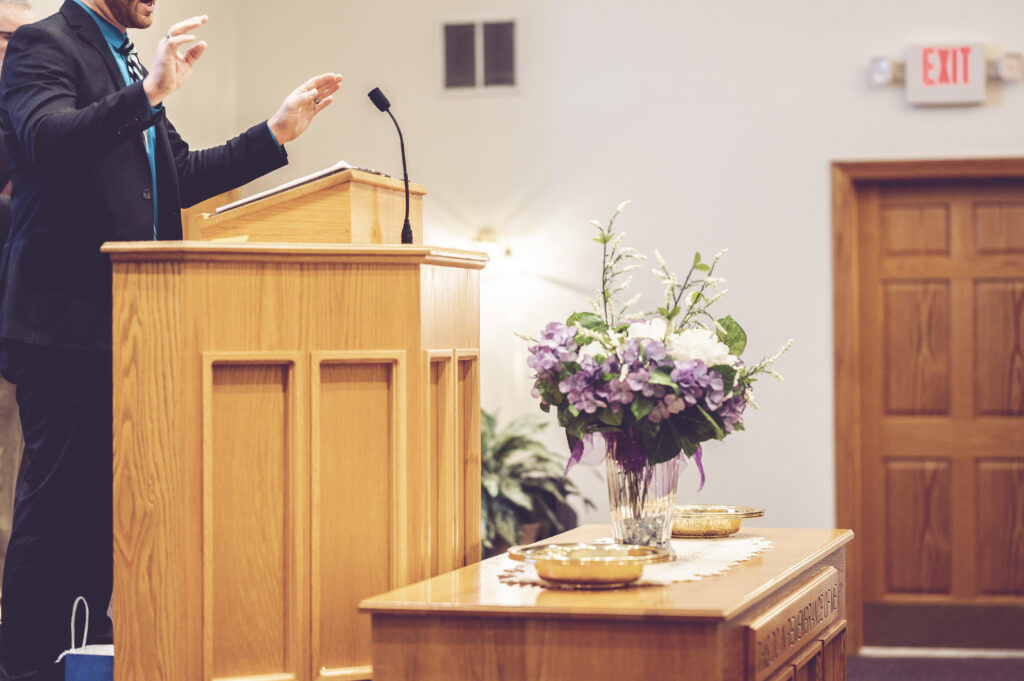
For many pastors, it’s difficult to not take it personally when people leave their church. But according to a recent Lifeway Research study, most churchgoers aren’t leaving a church because they have a personal complaint against the pastor. During the research screening process, it was determined only 53% of U.S. regular churchgoers say they have attended more than one church as an adult. Among these, most say their church change was impacted by a residential move (60%). Still, 40% of church changes were driven by something other than a residential move.
Churchgoers who changed churches for a reason other than a residential move are most likely to say they made this change because of changes at the church they did not like (29%) and the church was not fulfilling their needs or reasons for attending (29%). However, 1 in 4 (27%) say they changed churches because they became disenchanted with the pastor. The opinions of church switchers about their previous church and pastor may not be entirely accurate, but their perceptions can give pastors an insight into how current churchgoers can grow disengaged and become former churchgoers.
Pastoral disenchantment
The 27% who left their previous church due to the pastor have a mix of complaints. They’re most likely to say the pastor seemed hypocritical (36%). A third (33%) say the pastor was not a good preacher. Around 3 in 10 say the pastor was judgmental of others (30%) or seemed insincere (29%). Close to a quarter say the pastor had a moral or ethical failure (24%) or had no clear purpose or vision (23%). One in 5 believed the pastor settled for mediocrity (21%). Fewer said the pastor was unfriendly and/or unwelcoming (16%), the pastor lacked firm beliefs (13%), or other reasons (15%).
The oldest churchgoers, those 65 and older, are among the most likely to say they became disenchanted with the pastor of their previous church (37%). White churchgoers (31%) and those with graduate degrees (35%) are also among the most likely to say they left their previous church because they became disenchanted with the pastor. Those who attend worship services the most (at least four times a month) are more likely than those who regularly attend the least (twice a month) to say they left their previous church because they became disenchanted with the pastor (33% v. 17%).
Current church comparisons
Churchgoers are more likely to say they’ve meshed with the pastor of their current church. Churchgoers who switched churches because they were disenchanted with their previous pastor commonly say the pastor seemed hypocritical, judgmental, and insincere. But among churchgoers who switched churches for any reason, most say their current church members and pastor seem more (31%) or much more (26%) authentic, real, and down-to-earth than at their previous church. Another common complaint about pastors was that their preaching was not good. But most church switchers say sermons at their current church are more (32%) or much more (26%) engaging and enlightening than sermons at their previous church. They also say the preaching at their current church is more (31%) or much more (28%) relevant to them than at their previous church.
Other churchgoers who became disenchanted with their pastor say the pastor settled for mediocrity. But most churchgoers who changed churches say their current church does things with excellence more (32%) or much more (23%) than their previous church did. Some churchgoers say they left their previous church because the pastor was unfriendly or unwelcoming. But nearly 3 in 5 church switchers say their current church is more (29%) or much more (29%) welcoming and friendly than their previous church. Fewer churchgoers point to the pastor’s lack of firm beliefs as a reason they changed churches. And more than half of churchgoers say they agree with the teachings, beliefs, and doctrine of their current church more (26%) or much more (26%) than at their previous church.
Identifying gaps
Although churchgoers age 30-49 (64%) are more likely than those 50-64 (56%) and over 65 (53%) to say their current church members and pastor seem more or much more authentic than the members and pastor at their previous church, the youngest churchgoers (those 18-29) are among the most likely to say their current church members and pastor are less or much less authentic than at their former church (18%). Those 18-29 are also among the most likely to say they agree with the teaching, beliefs, and doctrine of their current church less or much less than their previous church (18%).
Still, the youngest churchgoers are among the most likely to say the sermons at their new church are more or much more consistently engaging and enlightening (66%). And those 18-29 (66%) and 30-49 (68%) are among the most likely to say their current church is more or much more friendly and welcoming than their previous church.
Baptist churchgoers are among the most likely to say, compared to their previous church, the church members and pastor at their current church seem more or much more authentic, real, and down-to-earth (57%) and that their current church does things with excellence more or much more than their previous church did (56%). And those with evangelical beliefs are more likely than those without evangelical beliefs to say the sermons at their current church are more or much more consistently engaging and enlightening (63% v. 53%), the preaching is more or much more relevant to their lives (64% v. 52%), the church does more or much more with excellence (60% v. 49%), and they agree more or much more with the teachings, beliefs, and doctrines of their current church (58% v. 45%) than their previous church.
Elevated preaching
Although a third of churchgoers who left their previous church because of pastoral disenchantment say the pastor was not a good preacher (33%), most say sermons at their current church are more engaging, enlightening, and relevant. Overall, churchgoers are more likely to describe the preaching in their current church in positive terms compared to the preaching in their previous church.
Half of churchgoers who switched churches say the preaching in their previous church was relevant to their lives (49%) and clear and understandable (48%), while more than 4 in 5 say the preaching in their current church is relevant to them (85%) and clear and understandable (89%). Whereas 43% of churchgoers say the preaching at their former church challenged them to live and think as Scripture teaches, 84% say the same about their current church. Additionally, 44% of churchgoers say the preaching at their previous church interested them enough to hold their attention, while twice as many say the same about their current church (88%).
The minority of churchgoers also said the preaching at their previous church taught them something they didn’t already know (43%), focused on a specific verse-by-verse text (44%), and focused on a specific topic (44%). Meanwhile, more than 4 in 5 churchgoers say the preaching at their current church teaches them something they didn’t already know (84%), focuses on a text verse-by-verse (81%), and focuses on a specific topic (82%).
















